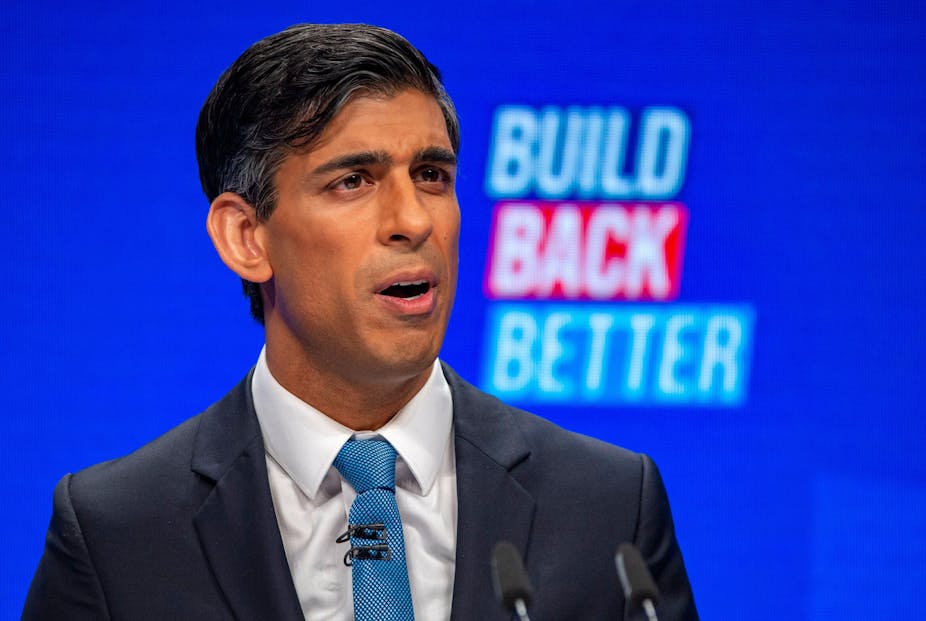The UK’s social security (welfare) system entered the pandemic in exceedingly poor health after years of cuts, ill-equipped to provide support to people who became ill or lost their jobs because of COVID-19.
The £20 increase to universal credit was arguably a tacit acknowledgement of the inadequacy of our system, as was the furlough scheme. Although this uplift was always badged as temporary, its removal leaves millions of households facing an immediate 5% loss in their income. While £20 a week may not seem like much, to many families it has been a lifeline which they are terrified to cope without.
In our research on the realities of living on a low income during the pandemic, we’ve worked with more than 100 parents and carers to better understand the poverty and hardship they face and to develop recommendations for what needs to change and why.
In online diary entries and virtual discussion groups, participants described the significant difference the £20 increase in universal credit has made, and their very real fears about how they will manage without it.
Charlotte, a single parent from Northern Ireland, describes how important the £20 has been for her and her two children:
I rely on [the £20 uplift] so much. I have so many new expenses since my daughter started secondary school…I don’t think the government who make all these decisions about whether or not to keep the £20 uplift going has considered what we actually need it for. Its a real struggle financially at the minute.
Her fears are echoed by Syeda, who now faces going further into debt:
I am trying to keep afloat by budgeting in all sorts of ways – so the loss of the £20 … would have a huge impact. I am not sure I can afford to cut back on anything other than debt repayments. Meaning my debt from the relationship breakdowns will extend further.
Teddy reflects on the difference the £20 makes to her and her family:
It’s the difference between having the internet on, so my children can home school, or not. It’s the difference in having electric and food in the house or not. It’s quite simple. It’s a choice between paying for something or not paying for something. [The cut] could drag me further into debt.
A political choice
The £20 cut to universal credit leaves families facing impossible decisions about how to get by at an incredibly difficult time. The decision to go ahead with the cut represents a political choice which ignores the evidence on the harm the cut will do – 5.5 million people affected, with hundreds of thousands of families and children set to become impoverished.
It also ignores the ever growing number of voices calling for the cut to be stopped. These voices come from both left and right, indicating the groundswell of support (further reflected in public opinion) against the cut. It is a rare example of an issue on which former Labour prime minister Gordon Brown and former Conservative secretary for the department of work and pensions Iain Duncan Smith agree.
The millions of affected families will experience the material harm of an immediate (and substantial) drop in their incomes. But going ahead with the cut also implies that affected families are not deemed worthy of support, instead being forced to turn to charitable help from the growing number of food banks, or discretionary and conditional support from local authorities (to which the government gave a £500 million boost last week).
For people in poverty, social injustice takes many shapes – not just in the absence of income, but also in the lack of respect and recognition they routinely experience.
Cutting £20 also makes it evident that the government is not listening to families on a low income and is completely ignorant of (or ignoring) the realities of their everyday lives. This could significantly worsen relationships between individuals and their elected officials, and may well be hard to correct.
The £20 increase to universal credit was imperfect. Millions of people on disability and sickness benefits, and claimants of legacy benefits, did not receive it. Those whose income is limited by the benefit cap did not receive it, while some will have had their income capped for the first time because of the additional payment. The flat weekly payment of £20 did not take account of household need, meaning that a single-person household received the same as a family of five. But it did provide urgent, much-needed support during the pandemic.
While there is never a good time to reduce social security support, it would be hard to imagine worse circumstances than our current ones in which to cut it. The country faces a cost of living crisis, and we are approaching a winter set to be marked by ongoing supply chain crises, rising fuel bills and continued inflation.
Social security provision – properly funded – can help families weather such times, making sure everyone has access to sufficient income to afford basic necessities. Making the £20 uplift to universal credit permanent would have helped social security do its job. Without it, families will face a harsh and difficult winter.

